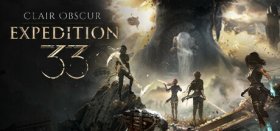
Clair Obscur: Expedition 33 Opened My Mind
For quite a long time now, I haven’t truly connected with a game on a deeper level. I won’t deny that I’ve enjoyed my time with a lot of my recent endeavours, but they haven’t had a more profound effect on me in the way Clair Obscur: Expedition 33 has. I won’t be directly spoiling any story beats here, but I will be discussing my interpretations of themes the game presents; while not outright spoilers, it might be best to come back to this once you’ve finished the game!
Videogames are both a form of entertainment and a form of artistic expression, but the latter has taken root in my mind far less than the former. A lot of the time I spend playing games is for distraction, or to simply spend time being decently entertained; it’s fallen into a sort of white noise. It’s what I do to keep my mind active, and that deeper artistic impact has somewhat lost its way for me. I don’t specifically know when, nor why, this happened, but Expedition 33 put me back into a mindset with the medium that I’m far happier with. This disconnect with art has been something I hadn’t noticed, but I’m glad to be aware of it now. It has carried over to music, too: I use it to fill the silence, instead of actively focusing and reflecting on it. This is something I’d classify as a failure of my core values and — if I’m being dramatic — a betrayal of my own humanity. Art is a core aspect of the human experience, and our ability to create and to appreciate art is what sets us apart from everything else that lives on this planet.

Expedition 33 is a game that takes a deep dive into how art connects to those who make it, and the innate value of art itself. Initially, a lot of what I loved about this title came from more traditional elements: the characters and writing are fantastic, the gameplay is satisfying, and the music, oh my god, the music (we’ll get to this in more detail later). As the game's story develops, though, so do the depths of its themes. Art holds a level of humanity; you could even say each piece of art holds a piece of the artist's soul. This idea is something that stuck with me and helped me realise that I’d let such a deeply important concept fall to the wayside. After this, all began to fall in place, and so did my connection to the game itself. While yes, it is still a videogame, the characters, places, and relationships aren’t real, there’s a level of authenticity to it beyond what I think is often seen and given credit for: there’s soul. There’s a piece of the developers, artists, voice actors, and everyone who worked on this project in every corner of the game. Their passion bleeds into each crevice, and as Gustave states in the prologue, “Legacy can take many forms”.
The absolutely fantastic OST was the other core aspect to this game, which hit me so hard. Lorien Testard has found a spot amongst my favourite composers, and it’s a perfect fit for the title. There’s a crazy variety in the music styles, from incredibly intense combat tracks to more sombre ones for the more emotional moments. The first use of the track Lost Voice in the prologue was already enough to have me welling up a little, and there were multiple instances during the later boss encounters where I’d simply put the controller down and enjoy the music. There’s a great usage of leitmotifs here as well, making certain moments feel far more impactful, and incredibly clever uses of songs that are easily missed. The other core aspect of the OST, which I found so impactful, was the seemingly clear inspiration. So many songs feel inspired by some of the greatest composers in the industry (and some of my favourites), such as Keiichi Okabe (NieR, Drakengard) and Nobuo Uematsu (Final Fantasy, Chrono Trigger), but there’s enough unique flair to not make it feel unoriginal. The French vocals (done by both Alice Duport-Percier and Victor Borba) and fantastic instrumentation work well with the impeccable art direction to create a unique atmosphere.

To simplify it all down, the themes of Expedition 33, along with the clear passion of everyone involved in its development, had an unbelievably profound effect on me. It’s sparked a fire within me for both my love for videogames, and for art as a whole. Not only has it made me want to stretch my creative muscles and make something I can truly call my own, but also dive deeper into other games, especially those I may have glossed over in the past.
Sandfall Interactive are a wonderfully talented team, and Clair Obscur: Expedition 33 has found itself as not only one of the best games I’ve played in recent memory, but is cemented as one of my favourites of all time.









COMMENTS
Colton - 01:37pm, 10th May 2025
Hi Jacob!
Just wanted to add a correction: you're right that the soundtrack draws a lot of inspiration from the composer for Chrono Trigger, but that was not Nobuo Uematsu. That was Yatsunori Mitsuda, whose work on the soundtracks for the Xenoblade Chronicles series is singled out by Lorien Testard on his Sandfall Interactive bio. Great article, though!
SandersonJ23 - 01:47pm, 10th May 2025 Author
Hey Colton,
I appreciate the correction! I'm not super familiar with Mitsuda's work beyond a few tracks from Chrono Trigger, so I must have overlooked that when I was doing research for this article. Many thanks for the kind words!